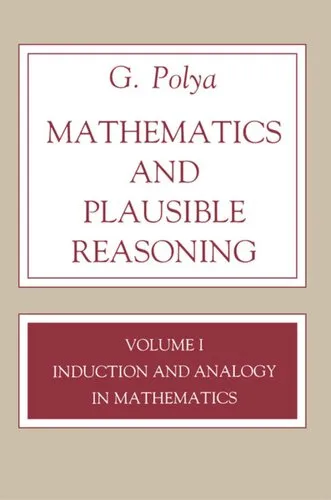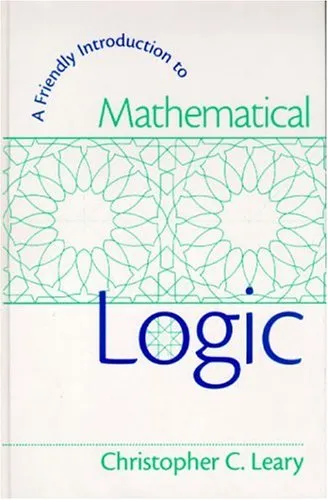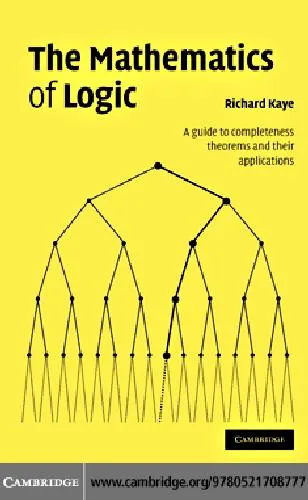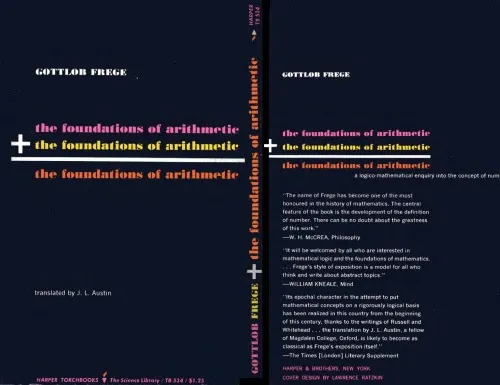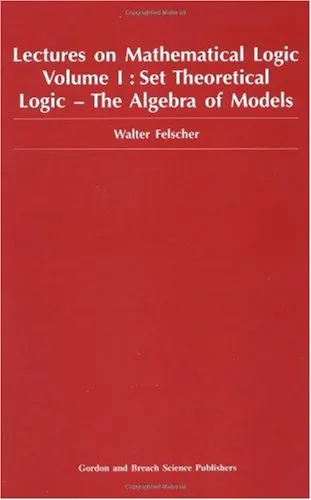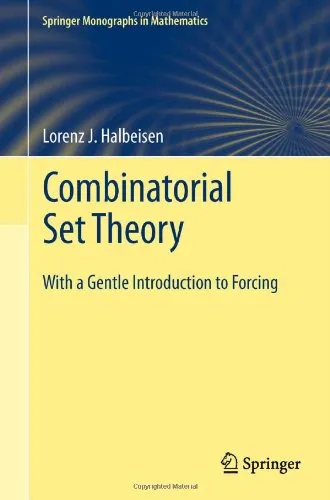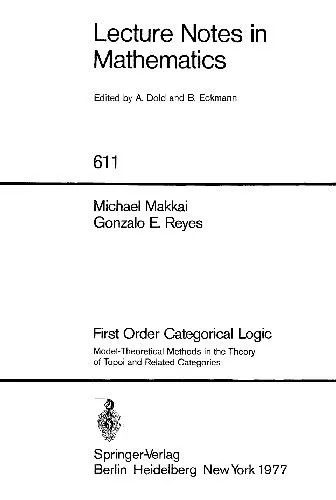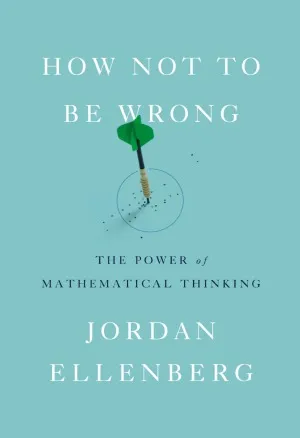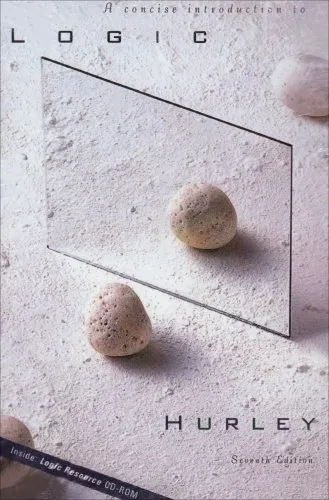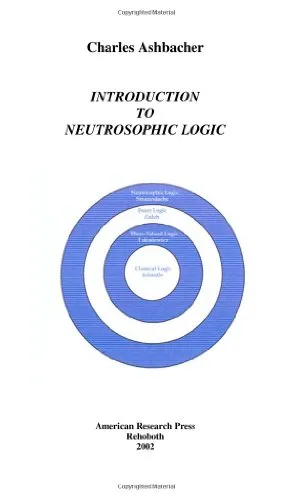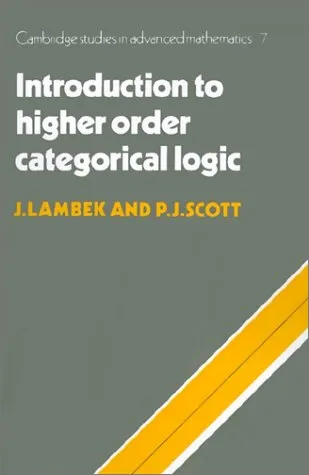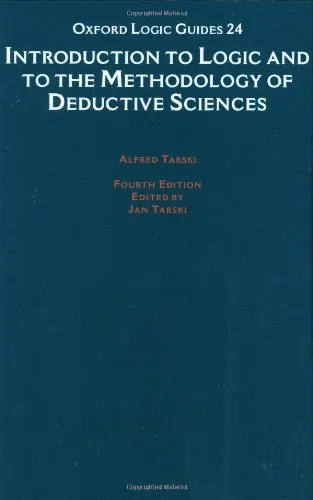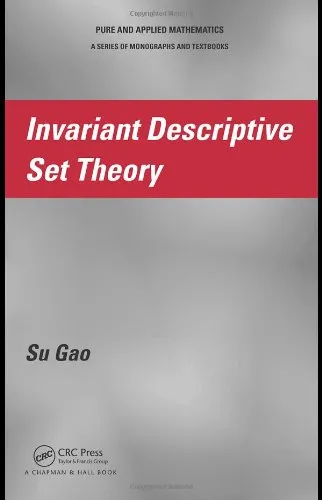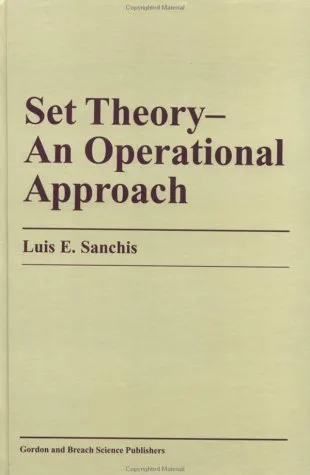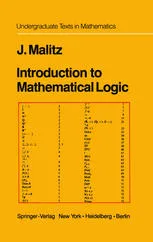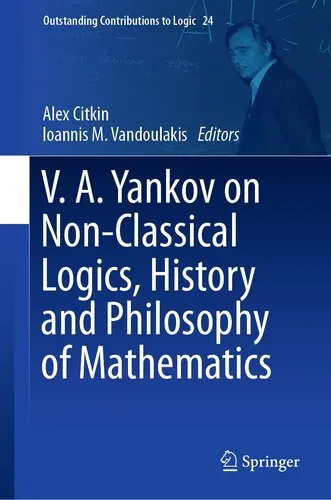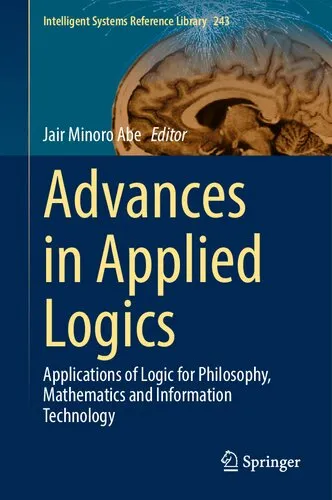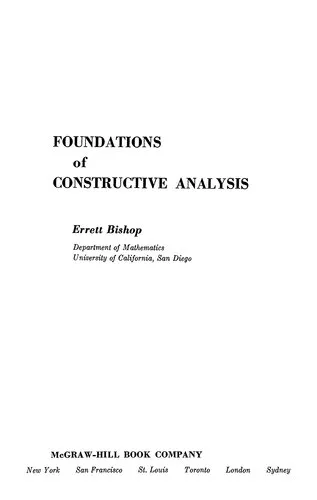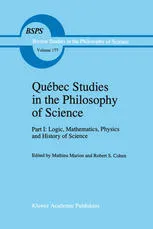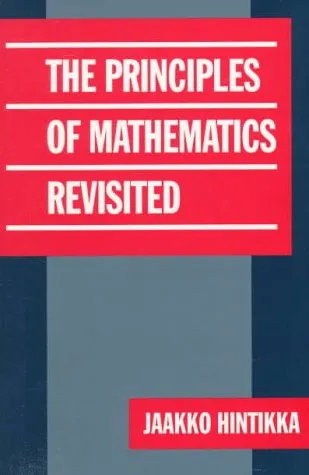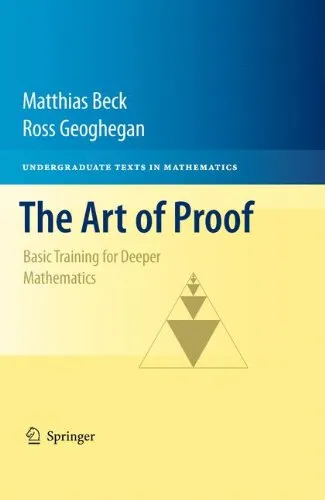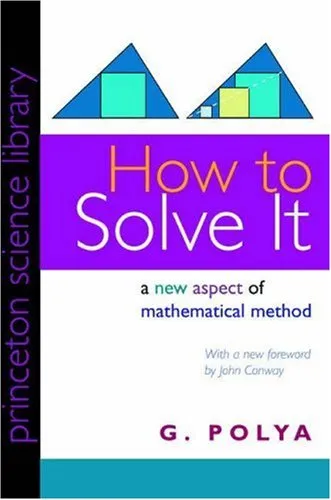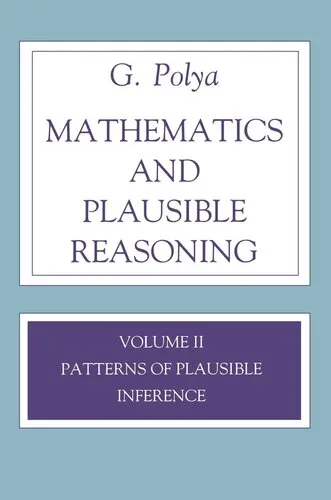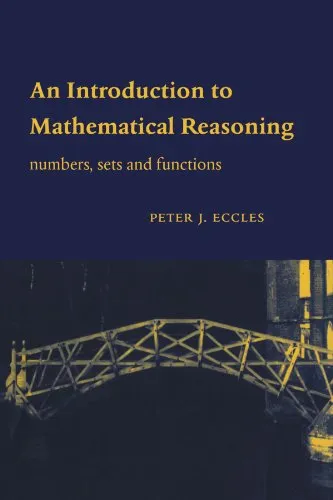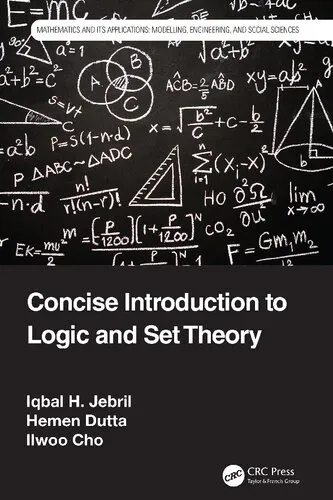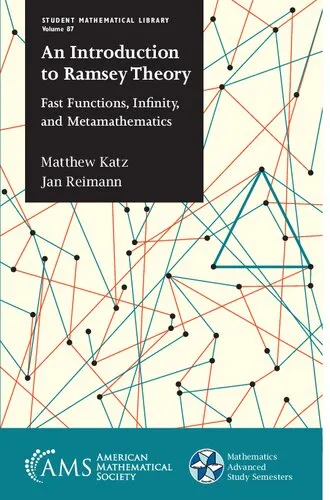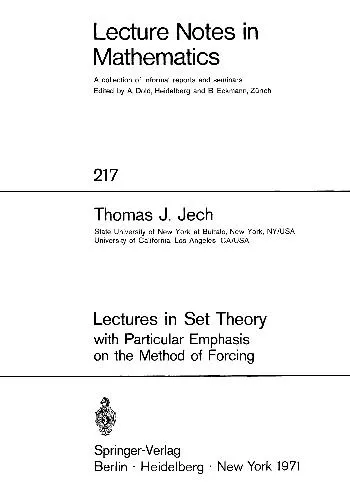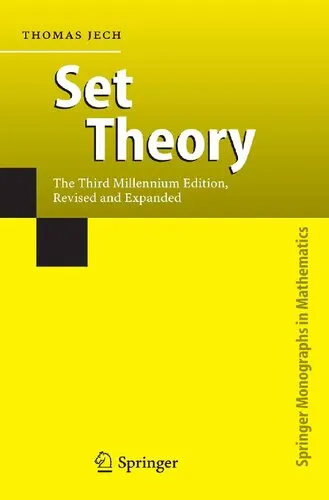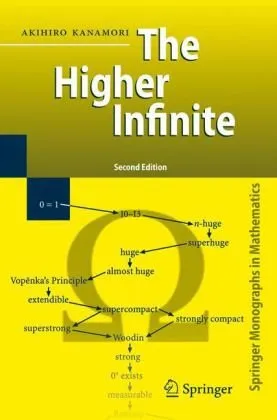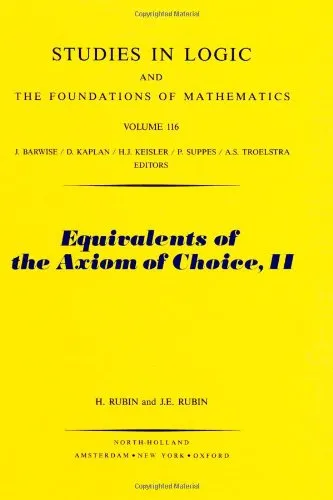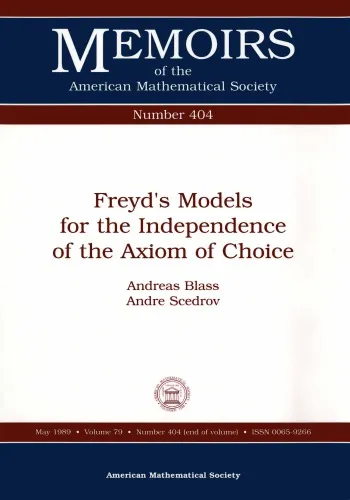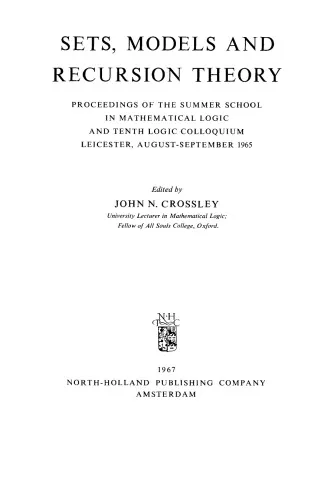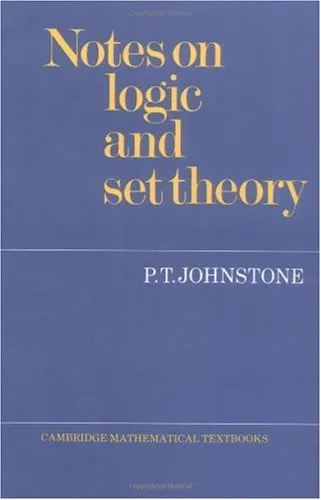Mathematics and Plausible Reasoning, Volume 1: Induction and Analogy in Mathematics
4.7
Reviews from our users

You Can Ask your questions from this book's AI after Login
Each download or ask from book AI costs 2 points. To earn more free points, please visit the Points Guide Page and complete some valuable actions.Related Refrences:
Introduction to "Mathematics and Plausible Reasoning, Volume 1: Induction and Analogy in Mathematics"
"Mathematics and Plausible Reasoning, Volume 1: Induction and Analogy in Mathematics" is an extraordinary work authored by George Pólya, one of the most celebrated mathematical thinkers of the 20th century. This book serves as a bridge between rigorous mathematical reasoning and the often less formal—but equally essential—plausible reasoning that underpins human problem-solving. It explores how mathematicians and thinkers develop ideas, form conjectures, and make connections based on patterns and analogies, often before solid proof is uncovered.
In this first volume of his two-part series, Pólya shifts the focus from deductive reasoning, which is the hallmark of formal mathematics, to a more intuitive and exploratory approach. By doing so, the book demystifies how the process of discovery happens and sheds light on the creative and heuristic methods that lead to new mathematical insights. It is a must-read for mathematicians, scientists, educators, and even students who seek to deepen their understanding of how powerful ideas in mathematics emerge. Whether you are an expert or a curious learner, this book will transform how you think about problem-solving and mathematical discovery.
Detailed Summary of the Book
The core premise of "Mathematics and Plausible Reasoning, Volume 1" revolves around the idea that mathematics is not purely deductive but also involves hypotheses, analogies, and inductive reasoning. Over the course of the book, Pólya examines how mathematical discovery often starts with plausible ideas that must later be tested and validated. He divides the content into two main areas—induction and analogy.
The section on induction explains how mathematicians and scientists extrapolate from specific cases to general principles. By reflecting on real mathematical problems, Pólya demonstrates how past experience and observed regularities can form the basis of new theories. He intertwines classical examples, problem-solving techniques, and insights into the human thought process.
The discussion on analogy takes a closer look at how similarities between different problems, structures, or results can serve as a guiding tool. Through detailed examples and step-by-step reasoning, Pólya shows how analogies provide a foundation for further exploration while highlighting both their strengths and limitations. By doing so, he not only celebrates the creative elegance of mathematics but also instills respect for the scientific rigor required to confirm plausible reasoning.
Key Takeaways
- Mathematics involves not just deductive proofs but also the creative processes of induction and analogy.
- Plausible reasoning allows mathematicians to make conjectures and discoveries before formal validation.
- Analogies play a vital role in solving problems by drawing comparisons between seemingly unrelated concepts.
- The principles explored in the book are directly applicable not only to mathematics but also to science, engineering, and general problem-solving.
- This book emphasizes the value of curiosity, patterns, and intuition in the discovery process.
Famous Quotes From the Book
"Mathematics is not a deductive science—that's a cliché. When you try to prove a theorem, you don't just list the axioms and then draw conclusions. That's not the way it works. You come up with an idea, then you try to convince yourself that it's correct."
"Induction makes broad generalizations from specific observations, while analogy involves inferring similarities from comparisons."
"Plausible reasoning not only inspires us to seek, but also guides us toward what might eventually lead to rigorous proof."
Why This Book Matters
"Mathematics and Plausible Reasoning, Volume 1" is a groundbreaking text because it highlights an essential but often overlooked aspect of mathematical thinking—the journey from conjecture to proof. By focusing on induction and analogy, Pólya provides a rare glimpse into the creative aspects of mathematics, which are as critical as the formal processes taught in classrooms.
This book stands out for its timeless relevance. While mathematics has grown considerably as a discipline since the book's publication, Pólya’s insights remain pertinent because they are rooted in fundamental human thought processes. The emphasis on plausible reasoning allows readers to appreciate the artistry and ingenuity behind mathematical discoveries.
Furthermore, this book is a valuable resource for educators and students alike. Teachers can use its principles to nurture curiosity and analytical thinking in their classrooms, while students gain a deeper appreciation for the methods that mathematicians use when tackling difficult problems. More broadly, it serves as inspiration to anyone interested in the intellectual adventure of reasoning.
Free Direct Download
You Can Download this book after Login
Accessing books through legal platforms and public libraries not only supports the rights of authors and publishers but also contributes to the sustainability of reading culture. Before downloading, please take a moment to consider these options.
Find this book on other platforms:
WorldCat helps you find books in libraries worldwide.
See ratings, reviews, and discussions on Goodreads.
Find and buy rare or used books on AbeBooks.
